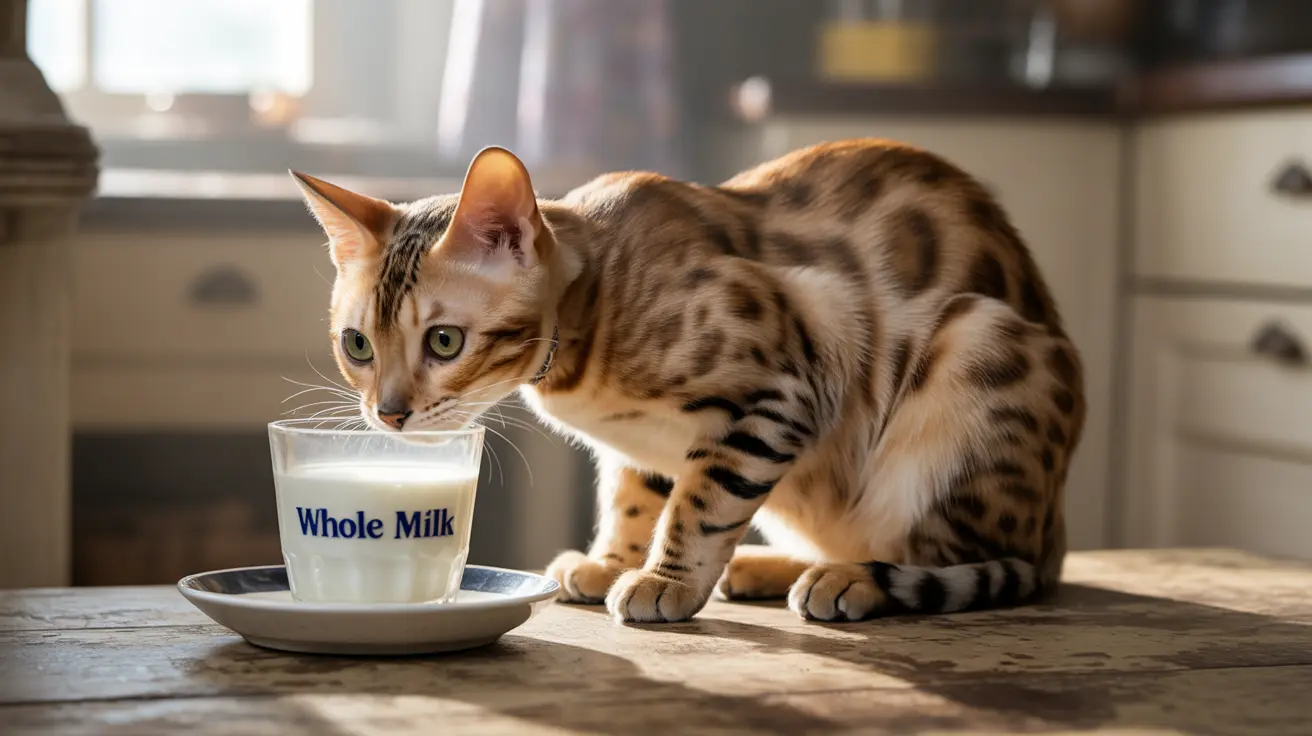The image of a cat contentedly lapping up a saucer of milk might seem wholesome and natural, but the reality about cats and milk is far more complex. While this iconic scene has been portrayed countless times in media, the truth is that milk isn't as beneficial for cats as many people believe.
In fact, most adult cats are lactose intolerant, meaning they lack the necessary enzymes to properly digest milk. This surprising fact challenges the long-held belief that milk is an essential part of a cat's diet. Let's explore the science behind cats and milk consumption, and what pet owners need to know to keep their feline friends healthy.
Understanding Lactose Intolerance in Cats
Like many mammals, cats naturally produce the enzyme lactase during their kitten stage to help them digest their mother's milk. However, once weaned, most cats stop producing sufficient amounts of this enzyme, leading to lactose intolerance. This biological change means that the majority of adult cats cannot properly digest the lactose (milk sugar) found in dairy products.
When lactose-intolerant cats consume milk, the undigested lactose moves into the large intestine where it ferments, potentially causing significant digestive discomfort and health issues. This process can lead to various uncomfortable symptoms that can affect your cat's wellbeing.
Common Signs Your Cat Can't Tolerate Milk
If your cat has consumed milk and shows any of the following symptoms, they may be lactose intolerant:
- Diarrhea
- Vomiting
- Stomach upset and bloating
- Excessive gas
- Increased lethargy
- Frequent trips to the litter box
- Visible discomfort or restlessness
The Nutritional Reality of Milk for Cats
Despite containing calcium and protein, milk isn't a necessary part of an adult cat's diet. A complete and balanced cat food provides all the nutrients your cat needs for optimal health. In fact, feeding milk to cats can actually be counterproductive, as it may:
- Cause unnecessary digestive distress
- Lead to weight gain due to excess calories
- Create unhealthy eating habits
- Potentially result in dehydration from diarrhea
Safe Alternatives to Regular Milk
If your cat shows interest in milk, there are several safer alternatives available:
- Special cat milk (lactose-free) from pet stores
- Small amounts of plain, unsweetened yogurt (for cats who tolerate dairy)
- Wet cat food for added moisture
- Fresh, clean water (the best and most essential drink)
Keeping Your Cat Properly Hydrated
Instead of offering milk, focus on ensuring your cat stays well-hydrated through appropriate means. Consider these effective strategies:
- Place multiple water bowls throughout your home
- Use cat water fountains to encourage drinking
- Serve wet food as part of their diet
- Keep water bowls clean and fresh daily
Frequently Asked Questions
Is milk good for cats, or should they avoid it?
Most cats should avoid milk as they are lactose intolerant. While some cats might tolerate small amounts, milk isn't necessary for their diet and can cause digestive issues.
What are the symptoms of lactose intolerance in cats after consuming milk?
Common symptoms include diarrhea, vomiting, bloating, excessive gas, and increased trips to the litter box. Some cats may also become lethargic or show signs of discomfort.
Can cats drink lactose-free milk, and is it healthy for them?
While specially formulated cat milk (lactose-free) is safer than regular milk, it should only be given as an occasional treat. Water remains the healthiest drink for cats.
How can I ensure my cat stays hydrated if they are attracted to milk?
Provide fresh water in multiple locations, use pet fountains, and include wet food in their diet. These methods are more effective and healthier than offering milk.
What are the best alternatives to regular milk for kittens or adult cats?
For kittens, use specially formulated kitten milk replacer. For adult cats, stick to water and wet food for hydration, or offer small amounts of cat-specific lactose-free milk as an occasional treat.
Remember, while the idea of giving cats milk might seem natural, it's best to focus on providing them with a balanced diet and plenty of fresh water. If you're concerned about your cat's nutrition or hydration, always consult with your veterinarian for personalized advice.






